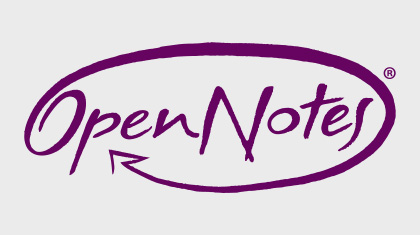
Many health experts see “consumer engagement” as a key to improving quality and lowering costs. But how to get people to be more actively involved in their own care has vexed these same experts for years.
Computers have unquestionably made things easier by enabling individuals, with a few clicks, to delve deeply into whatever health problem is bothering them; to learn about the advantages and risks of different treatments and medications; and, though they have not been widely used to date, to compare the cost and quality of different hospitals and physicians.
With the growth of electronic medical records, health care systems are now offering patients access to at least some of their medical records. But one kind of record has consistently remained off-limits—the doctor’s own notes. Through a series of grants to Beth Israel Deaconess Medical Center generated by the Robert Wood Johnson Foundation Pioneer Portfolio, the Foundation has been trying to change this. The program—called OpenNotes—has been testing, in three different medical settings, the idea of patients having access to their physician’s notes.
In this chapter of To Improve Health and Health Care Volume XVI, Irene M. Wielawski, a frequent contributor to the Anthology, examines the OpenNotes program in depth. Based on extensive interviews and visits to each of the sites, she concludes that the program has the potential to be a game changer (which is the goal of Pioneer-generated programs). She cautions, however, that because OpenNotes appears to be popular and effective in primary care settings does not necessarily mean that it will be equally so in specialty settings—especially those such as psychiatry and oncology, where the balance between openness and patient protection may have to be set differently.
Read the full chapter here.



